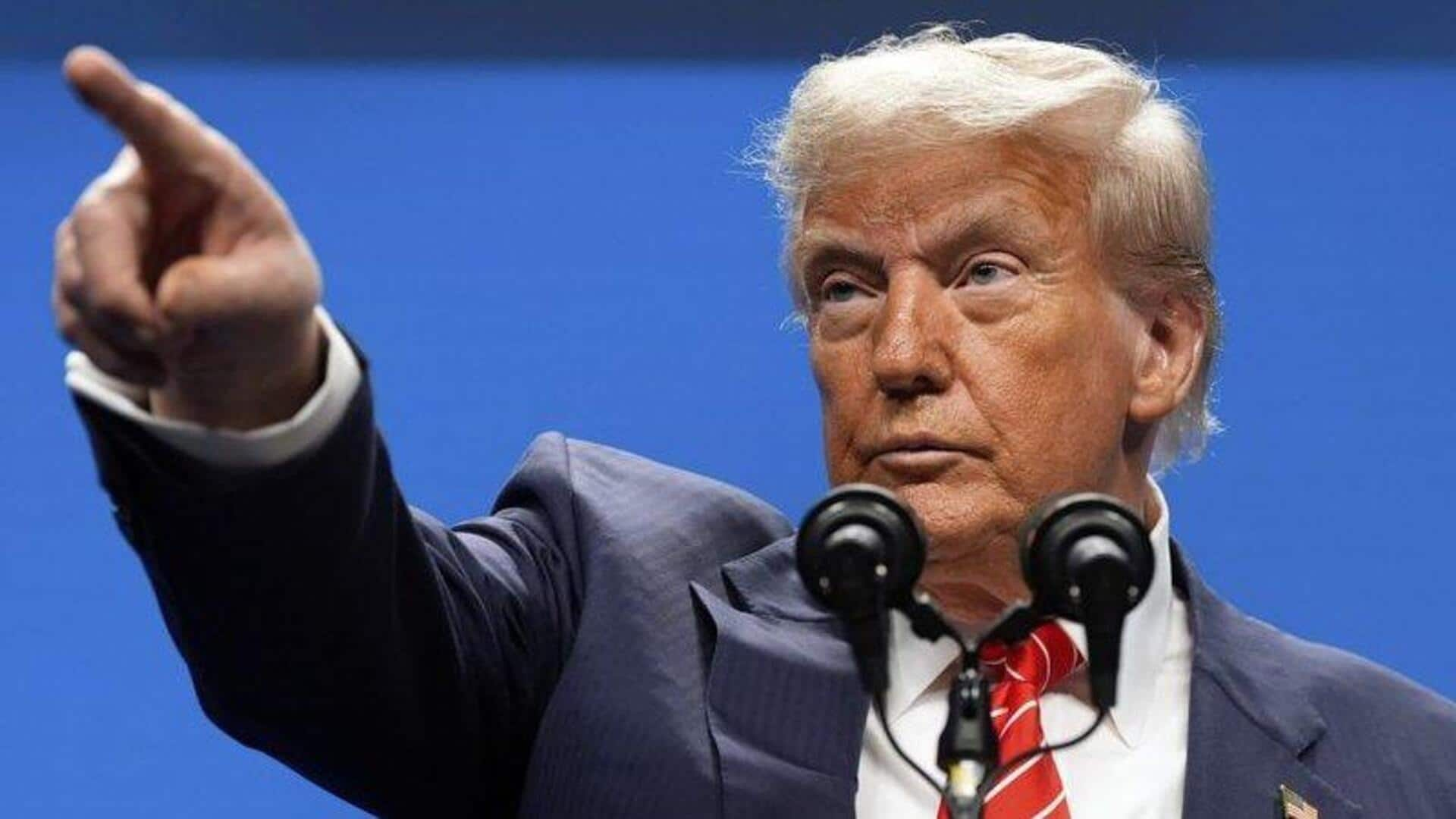
Trump to pressure G7 for higher tariffs on India, China
What's the story
The Trump administration is reportedly planning to urge Group of Seven (G7) nations to impose higher tariffs on India and China for purchasing Russian oil. The proposed tariff rates are between 50% and 100%. The move is aimed at pressuring Moscow into peace talks with Ukraine. The finance ministers of Canada, France, Germany, Italy, Japan, the United Kingdom, and the United States were expected to discuss this proposal on Friday.
Economic pressure
US Treasury Department's stance on Indian, Chinese oil purchases
A spokesperson for the US Treasury Department told the Financial Times that Chinese and Indian purchases of Russian oil are funding "Putin's war machine." The spokesperson said, "If they are serious about ending the war in their own backyard, they need to join us and impose meaningful tariffs that will be rescinded the day the war ends."
G7 presidency
Canada to consider measures to increase pressure on Russia
Canada, the current G7 president, has confirmed that it will consider "further measures to increase pressure on Russia and limit their war machinery." The move comes as Washington intensifies efforts to get allies on board with Trump's "Peace and Prosperity Administration" initiative. The US administration believes that economic pressure on India and China could severely impact Moscow's economy.
Tariff increase
Trump raised tariffs on Indian imports last month
Last month, the Trump administration raised tariffs on Indian imports to 50%. This included a 25% reciprocal duty and a 25% punitive levy linked to India's Russian oil purchases. In April, Trump had also increased tariffs on Chinese imports but partially rolled them back in May due to market backlash. This week, Trump called on the European Union to hit China and India with tariffs of up to 100%, but the bloc has rejected the proposal, per reports.
Peace efforts
Trump's struggle to broker peace between Russia and Ukraine
Officials are concerned about steep tariffs on major trading partners and possible retaliation from Beijing. Instead, Brussels is looking to expedite its 2027 phase-out of Russian energy imports and consider stricter sanctions. Trump, who had promised to end the war on his "first day," is struggling to broker peace between Moscow and Kyiv as Russian strikes on Ukraine intensify. After several rounds of negotiations, a much-anticipated summit between Trump and Vladimir Putin in Alaska last month concluded without a breakthrough.